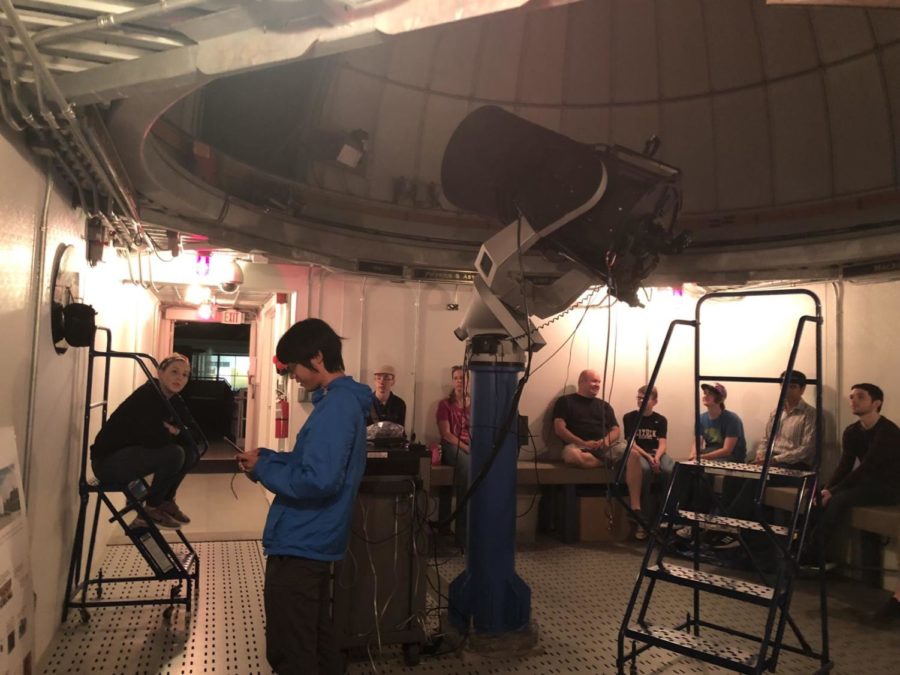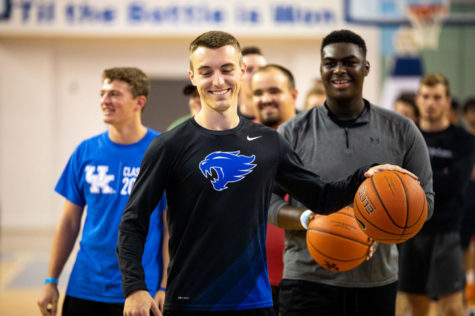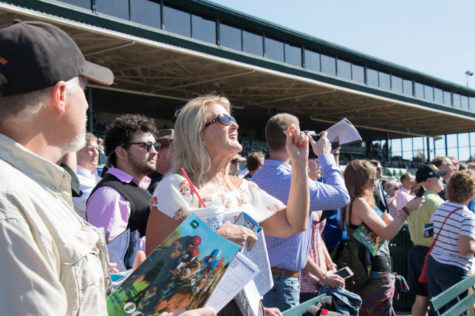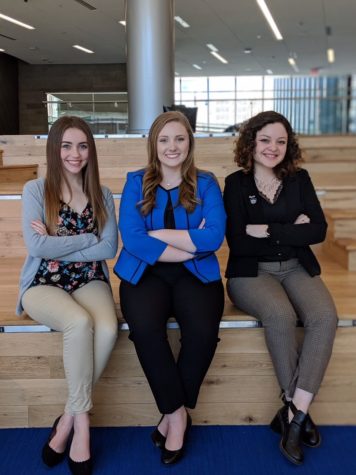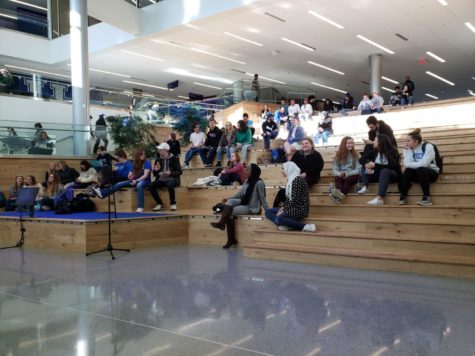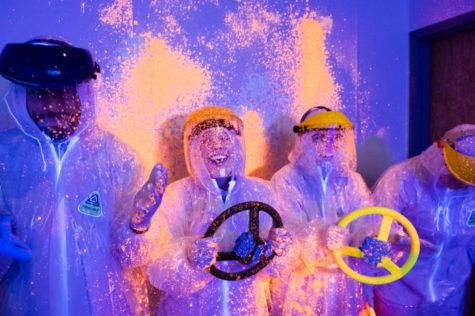Kentucky SkyTalk opens up a whole new yet familiar world for visitors
September 14, 2018
It is one thing to learn about the stars and planets in the night sky, but it is another thing entirely to see them with one’s own eyes. With Kentucky SkyTalk, anyone can get the best of both worlds, and quite literally, of other worlds, too.
Kentucky SkyTalk is a program run by the MacAdam Student Observatory staff, and all are welcome to learn more about the universe around them. The program is held every second Thursday of the month.
The event starts with a lecture given by one of the staff members or professors in the physics and astronomy department. Appropriately, this month’s lecture covered the physics behind eclipses, following the total solar eclipse that swept through much of the nation just over a year ago. Following the lecture, those in attendance are invited to the MacAdam Student Observatory to, weather permitting, experience the vast wonders of the night sky up close and personal.
Amber Moore, a fourth-year graduate student studying astrophysics, was one of the telescope’s main operators for the night. She was tasked with directing the telescope’s view. The stargazers were treated with stellar views of Saturn, Mars and a few deep space objects.
The program’s focus is to increase accessibility to the objects often hiding in plain sight in the night sky to general public, even to as young as middle school-aged students and younger.
“Everybody loves astronomy, but not everyone gets the opportunity to get paid to do it,” said Tim Knauer, observatory director and staff astronomer.
Knauer has served as the director since the observatory’s official commissioning in the spring of 2008— over a decade ago. The university has housed two other observatories in its time, both of which are no longer in operation.
Joseph Hudson, a self-taught stargazer and first-time visitor to the observatory, made note of his fascination for the cosmos and how his “kick” all started with the total solar eclipse of last year. Since then, he has gained much experience with and knowledge of stargazing and plans to continue doing so with his son, who is also deeply interested in the “Final Frontier.”
“I’ve always loved the sciences, and I took every science class imaginable, but I never took astronomy,” Hudson said, continuing to explain how his love of astronomy developed.
While the program is meant to display the unending night sky, it focuses especially on teaching and engaging students of all ages. This is most evident in the lectures, but even while at the observatory, the graduate assistants actively interacted with everyone present. At the Sept. 13 event, they even taught a little girl how to move a smaller telescope to focus on other objects in the night sky, including the moon, Jupiter and Saturn.
Upcoming SkyTalk events can be found online, in addition to flyers for previous events for those that missed one and want to catch up on the information presented.









































































































































